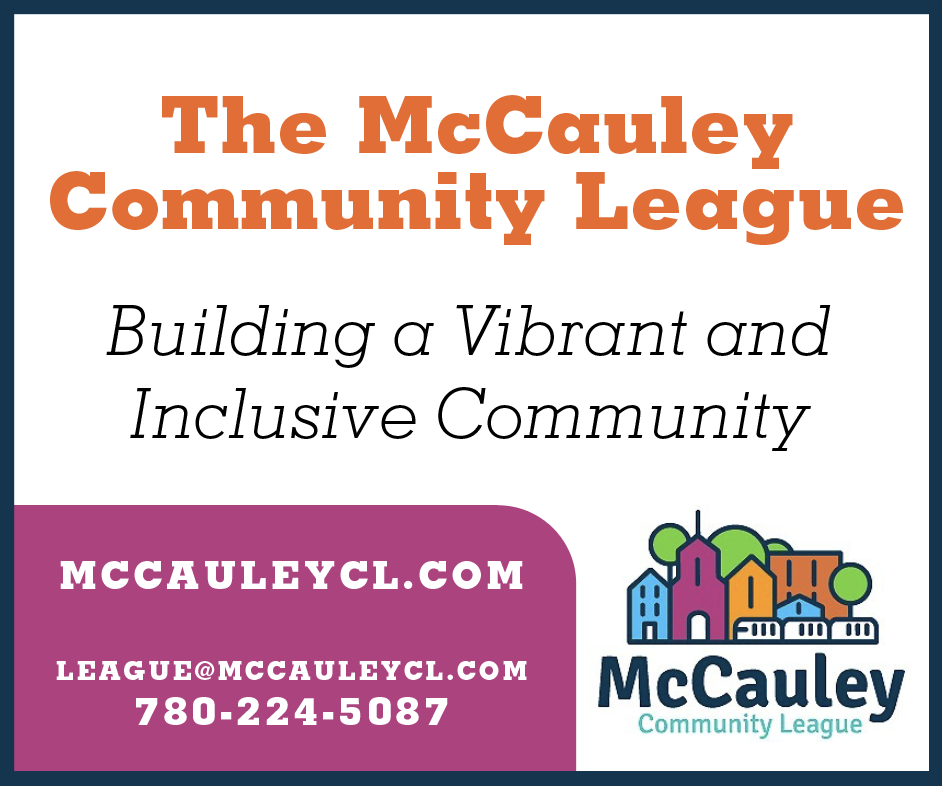Federal Funding Cut Ends Unique Refugee Program
Future uncertain for Trinity Manor residents

The mural on the wall depicts in brilliant colours the common story of the many refugees who have passed through Trinity Manor (10733 101 Street) over the last eight years. For them, it’s a story of moving from war zones into a place of hope. The left side of the mural, representing the past, is dark. As the eye moves to the right, through the present and towards the future, the colours get brighter and brighter. The big red hearts represent the love they’ve found here that has made Canada home.
On March 24, the common room in the basement of Trinity Manor was full of residents, staff, volunteers, and others who came to celebrate and to weep. The mural provided the backdrop. They celebrated eight years of a welcoming, supportive community for refugees from all over the world. They wept because Citizenship and Immigration Canada had cut off funding for the on-site staff and the community that were essential to maintain Trinity Manor.
Jim Gurnett, the former Executive Director of the Edmonton Mennonite Centre for Newcomers (EMCN), was one of the creators of this unique place. “What I loved the most over the years,” he told me, “was watching somebody come here barely able to hold their life together, on the verge of saying, ‘It’s not worth it. I’m gonna end things.’ And months later we encounter them at something and they’d be helping somebody else. They’d be having tea, listening and caring and helping. You know, a mother with two little kids and they’ve been abandoned by an abusive partner, and there’d be an older woman here to help. And sometimes they didn’t even know each other’s languages.”
One after another, residents, former residents, staff, and volunteers got up to tell stories like this and to thank each other with words, gifts, and cards.
At a meeting five days before, Erick Ambtman, EMCN’s Executive Director, reminded residents that social workers, psychologists, and others would still provide the services they need on site. He said, “We’ll do our best. We’re doing what we can to minimize the adjustment. But I know it won’t be good enough.”
Resident Faiza Ahmed said that when she first came to Trinity Manor four years ago, she couldn’t speak English. One day she couldn’t even breathe. A staff person took her to the hospital and stayed with her for nine hours. “The office service is excellent,” she says. “They show us how to find a job, a family doctor, and schools. They go with us. And here I have a tutor to help me with my homework.”
Hodan Idel said, “I feel like this is my family. I’m a single girl, and I feel safe here. People here helped me manage my money. I ran out of money in the middle of the month, and the staff helped me get food. Somebody went with me to help me get a job.”
Delmy Garcia-Hoyt, the program coordinator, explained that without staff on site, Trinity Manor will become just another apartment building. No longer will residents be able to earn money cleaning up an apartment after somebody moves out. They won’t have staff to show them how to clean and tell them what’s expected, to give them actual work experience that might help them find jobs. They won’t have staff on hand to facilitate community building, to help them get oriented to the city, to help traumatized people feel safe in a strange place where almost nobody knows their language. “The value of this program,” she said, “was about community, laughing, crying, celebrating together.”






